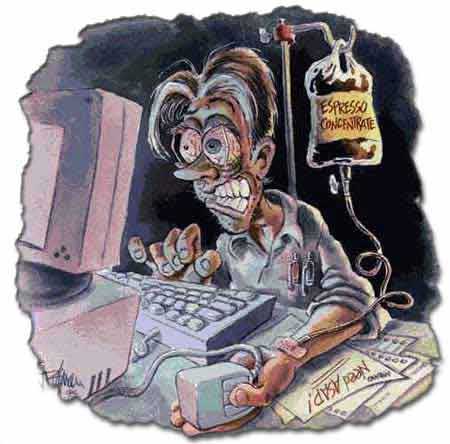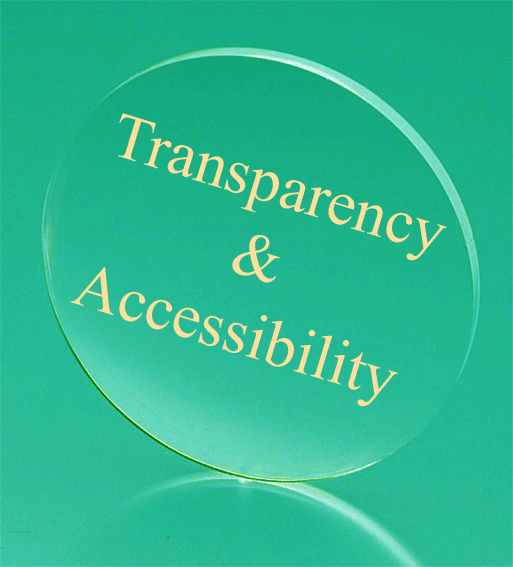Earlier this week @ASHPOfficial tweeted “Where should pharmacists draw the line at social networking? Protect your professional reputation and get tips for safety and privacy in the Summer issue of ASHP InterSections.â€Â The tweet included a link that took me to Facebook where I found another link to an article in ASHP Intersections Summer 2010 about pharmacy and social media; nothing unusual about that. I’ve read the article before and it contains some pretty good information. With that said, I did find it odd that ASHP was pointing pharmacists toward Facebook to retrieve professional information. It got me thinking about Facebook and where the professional line-in-the-sand between professional and personal social media should be drawn for pharmacists.
(more…)
Category: Web 2.0
-
Definition confusion with Health 2.0 and Medicine 2.0
The Journal of Medical Internet Research has a very interesting article on the definitions of Heath 2.0 and Medicine 2.0 found in the scientific literature. Take a look at this table showing the various definitions for each. Wow, I wonder if a universally accepted definition will ever be developed and if so who’s going to be the one to develop it?
Definition of Health 2.0 and Medicine 2.0: A Systematic Review
Tom H Van De Belt1, MSc; Lucien JLPG Engelen1; Sivera AA Berben1, MSc; Lisette Schoonhoven2, PhDABSTRACT
Background: During the last decade, the Internet has become increasingly popular and is now an important part of our daily life. When new “Web 2.0†technologies are used in health care, the terms “Health 2.0″ or “Medicine 2.0†may be used.
Objective: The objective was to identify unique definitions of Health 2.0/Medicine 2.0 and recurrent topics within the definitions.
Methods: A systematic literature review of electronic databases (PubMed, Scopus, CINAHL) and gray literature on the Internet using the search engines Google, Bing, and Yahoo was performed to find unique definitions of Health 2.0/Medicine 2.0. We assessed all literature, extracted unique definitions, and selected recurrent topics by using the constant comparison method.
Results: We found a total of 1937 articles, 533 in scientific databases and 1404 in the gray literature. We selected 46 unique definitions for further analysis and identified 7 main topics.
Conclusions: Health 2.0/Medicine 2.0 are still developing areas. Many articles concerning this subject were found, primarily on the Internet. However, there is still no general consensus regarding the definition of Health 2.0/Medicine 2.0. We hope that this study will contribute to building the concept of Health 2.0/Medicine 2.0 and facilitate discussion and further research.
(J Med Internet Res 2010;12(2):e18)
doi:10.2196/jmir.1350 -
All roads lead to Rome, err….I mean Twitter.
 Until the next big thing comes along Twitter is king. That’s why I found this Tweet from Robert Scoble so interesting. The Tweet itself simply let me to a blog article written by Louis Gray. The blog discusses two distinctly different approaches to sharing information; Louis Gray’s approach versus Robert Scoble.
Until the next big thing comes along Twitter is king. That’s why I found this Tweet from Robert Scoble so interesting. The Tweet itself simply let me to a blog article written by Louis Gray. The blog discusses two distinctly different approaches to sharing information; Louis Gray’s approach versus Robert Scoble.Louis utilizes Google Reader to collect and sort various RSS feeds. Any story, blog, article, etc. that he finds interesting get pushed to Twitter via the share feature in Google Reader (see the graphical representation at Louis’ site).
In the other corner you have Robert “using not RSS, but Twitter, to share the best of the technology Web as it streams on his screen.†Robert appears to be making extensive use of his Twitter Favorites.
(more…) -
Are e-patients better informed or just harder to treat?
I found an interesting article at EHR Bloggers that talks about the possibility of easy access to information via the internet resulting in difficult-to-treat patients and higher healthcare costs.
The concern raised in the NPR article describes the effect of information dissemination without context or interpretation – it happens anyway, with direct-to-consumer advertising in all forms of media, and it happens even faster with the Internet. And when patients, armed with these “facts†and the questions they raise, come to their physicians – the physician is often hard-pressed to put things into perspective. The result? Often, very-low-yield tests (or even unnecessary tests that raise the risk of harm through adverse events) and unnecessarily expensive treatments are agreed-to, simply because it’s the path of least resistance.
The problem isn’t with informed patients; it’s the model we’ve developed in our current healthcare system. The article speaks about limited time for physicians secondary to fee-for-service care. This is similar to what retail pharmacies have done with much of outpatient pharmacy services. Most retail pharmacists will tell you they spend more time fighting with insurance companies then they do talking with patients about their medications. One of the most enjoyable times of my pharmacy career was a short stint I spent working for a small independent pharmacy in San Jose. The owner/pharmacist that I worked with had a genuine interest in his patients, knew them by name and offered sound therapeutic advice. His patients appreciated his time and knowledge and were better informed to make important decision because of it.
The article goes on to offer some thought provoking ideas for closing the gap between our current healthcare model and well informed patients. It’s interesting stuff. If you have a moment I recommend you read the entire thing.
-
A great argument for being allowed to browse however you want
Slate.com: “The restrictions infantilize workers—they foster resentment, reduce morale, lock people into inefficient routines, and, worst of all, they kill our incentives to work productively. In the information age, most companies’ success depends entirely on the creativity and drive of their workers. IT restrictions are corrosive to that creativity—they keep everyone under the thumb of people who have no idea which tools we need to do our jobs but who are charged with deciding anyway.†– I couldn’t have said it better myself. I know my brother would endorse the sentiment as well.
-
Keeping up while on the information superhighway
Web 2.0 has certainly created an information revolution. I used to rely solely on journal articles to keep me up to date. Now I rely on an internet connection. Unfortunately, this creates a situation where information arrives faster than I can digest it, and if you’re not careful you can drown in the excess and end up not learning a thing.
(more…)
